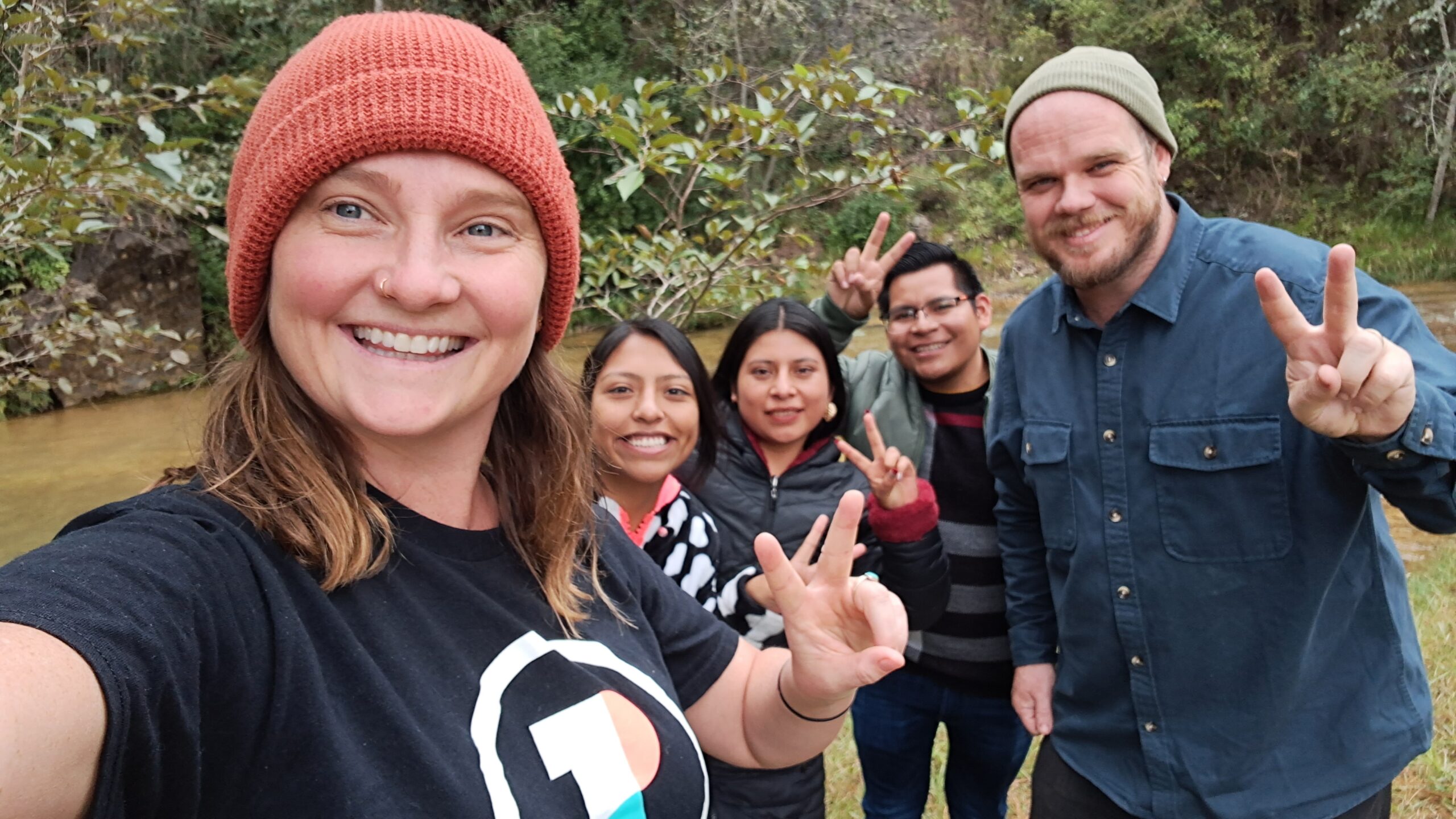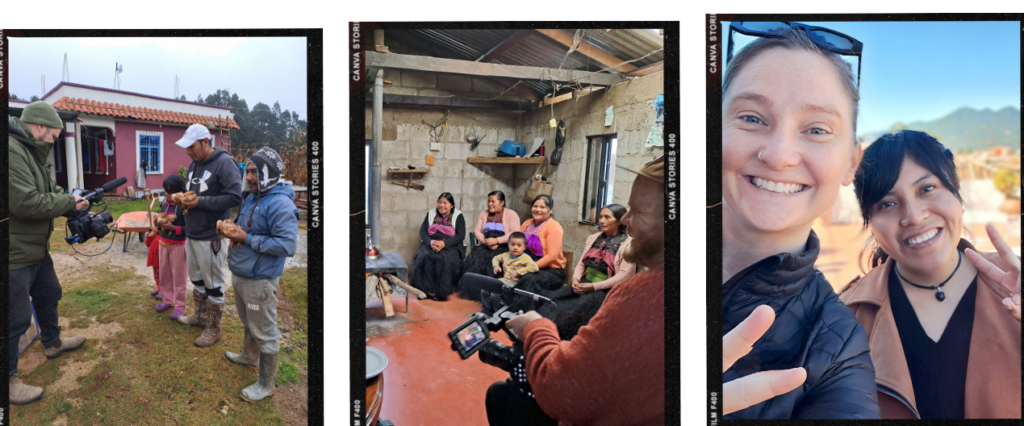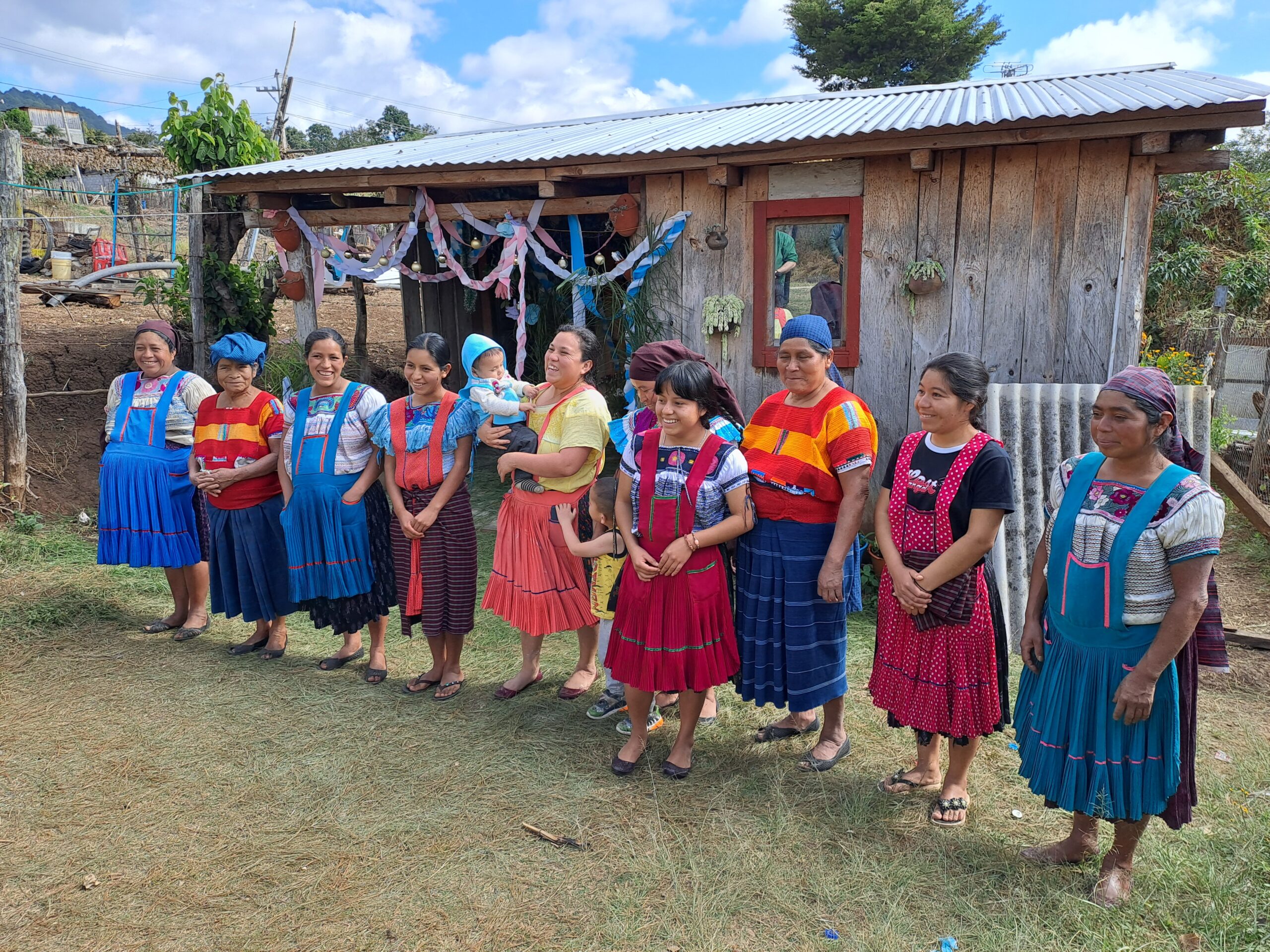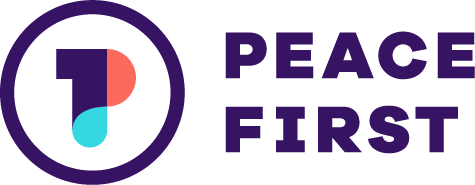What I Learned from Working with Indigenous Communities

By Amy Burns, Senior Finance Manager and DAP Program Manager at Peace First
As someone who often works behind the scenes, offering support to our fantastic team at Peace First, having the opportunity to engage directly with the projects and witness the remarkable efforts of the incredible young people we collaborate with was a truly enlightening experience.
The young people that we had the opportunity to work with in Chiapas, Mexico were inspirational. They approached their projects with a passion and drive that really reminded us why we do what we do.
I experienced these changemakers in the final part of their year-long work of returning to their communities to have the opportunity to start small enterprises and support themselves in a strong and dignified way. The changemakers confidently connected with numerous community members in their own language and in their own homes to help pass information and resources that the Australian Direct Aid Program (DAP) and Peace First provided .

In one instance, we witnessed 17 year old Raquel empowering 20 women in her community by sharing innovative gardening techniques, a task traditionally undertaken by significantly older men. Raquel and her colleagues, Petrona aged 21 and Veronica, aged 26 also introduced fresh concepts centered around the principles of nutrition — a vital aspect they believe is currently missing from their society’s educational framework
Personally, witnessing Peace First’s efforts first hand was an incredible experience, showing me the profound and direct ways we can empower young people and indigenous communities. However, this journey highlighted several key insights and areas for improvement. Below are key learnings we gathered:
Access to non-Spanish-speaking Indigenous Communities:
I believe that one of the greatest things that we learned was the importance of understanding what it really takes to work with indigenous communities who speak languages other than Spanish, have limited phone service, and often do not have access to computers. If we expect people to be part of online/in-person workshops, give feedback, receive money from institutional banks normally located in cities, send receipts, and work on reports, it is hard to meet these expectations without allocating additional funds to cover these essential needs and to make sure we fulfill the requirements of the project.
Meaningful Connection With Community Members:
Another big takeaway was that apart from project funding and support, people value a lot the time we put into listening to their stories and taking a moment to sit with them. In three out of the five communities that we went to, they told us that they had never had an Australian, or any other person that looked like us, come to visit them. In every home that we visited, we were offered coffee and a warm meal.
They wanted to share stories and culture — and most questions were not about big cities or tourist attractions, but about food, animals, family dynamics and how indigenous people live in Australia.
We learned through this experience that even though we know that we can do a lot remotely, it is important to think about in-person visits to make personal connections, even if the conversations need to go through a translator. For example, in Patyalemtón, Monte de sion San Cristóbal de las Casas and Chigton Huixtan, communities speak Tsotsil and in San Pedro Pedernal Huixtan, Amatenango de Valle, they speak Tseltal.
Investing in Sustainability
Even though these projects were set up to have long-term sustainability, I see it equally important to allocate funds and invest more in mid-term sustainability .
We learned that restricted grants can pose a significant challenge in planning for sustainability.
This realization helped us understand the importance of grasping the actual investment and capital required to maintain impact beyond the lifespan of a specific grant cycle. For example, at Peace First, we invested in purchasing chickens and securing sufficient feed and resources for their immediate needs. Our hope is that these provisions could sustain them until they are capable of launching their own ventures, selling eggs and mature chickens as a source of food.

At Peace First we are committed to supporting all groups of people, recognizing the indispensable role of young people with strong ties to their native cultures in bridging the gap between us and indigenous communities, which are often beyond our direct reach.
A significant number of the young individuals we funded and supported came from remote indigenous communities yet pursued their education in the urban setting of San Cristóbal de las Casas. This strategic move was crucial, enabling them to access dependable internet services and effectively communicate in Spanish during our workshops. Upon completing their education, they returned to their native communities, fluent in their indigenous languages and equipped with new knowledge. They are now ready to initiate projects that promise to significantly uplift these frequently neglected areas, which rarely benefit from external support.
Support our cause by donating to the Youth Investment Fund today: https://peacefirst.org/donate/

